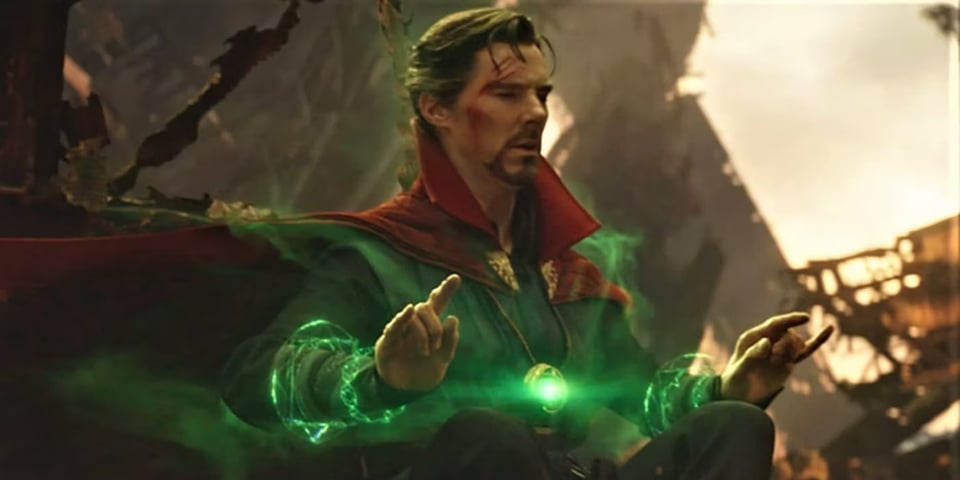
This past weekend, I was super honored to give the closing talk at XOXO, a wonderful festival in Portland OR that was happening for the very last time. I was so grateful to Andy Baio, Andy McMillan and Chloë Miller for having me, and so thrilled to hang out with so many brilliant creators and thinkers. It was a total blast.
I'll be turning my talk into a newsletter in a week or two — but for now, here's some stuff I wrote which didn't make it into the talk purely for length reasons...
The way we envision the future is shaped by how we think about the past. My mom is a historian, so I've always had one eye on history when I try to come up with plausible futures for my stories. And history is messy — a lot of things happened through a series of happenstances, and people tended to bumble around for a long time before they figured out how to do stuff. Periods of stability have always been followed by eruptions of chaos, and no system endures forever.
This is why alternate history has been such a fruitful genre: so many historical events could have turned out very differently, if any number of random events had gone in another direction. We've seen this in recent history: a lot of the most consequential events of the past ten years seem to have been the result of a whole lot of flukes and bad decisions on the part of random people.


But we tend to think of past events as inevitable, as if they were bound to happen. We think, as Morpheus says in The Matrix: Reloaded, "What happened, happened, and couldn't have happened any other way." That's why we're so keen to look for the "causes" of a particular event, because it's comforting to think that simple mechanistic cause-and-effect led to a massive historical shift.
It's comforting to point to huge forces that were brought to bear in a historical moment, making a particular even inevitable. This lets us reassure ourselves that even the worst atrocities happened the way they were "supposed to." It's a way of absolving ourselves of blame (or removing a sense of agency for the future) and putting all of the onus on structural issues that are too huge for us to influence. When in real life? We never really know how much power we have to prevent atrocities and injustices, until we try.
And this notion that the past happened the way it was "supposed to" plays into our notion that future "progress" cannot be hindered, even if it's likely to cause widespread human suffering through climate change and other by-products of our "brilliance".
In a nutshell, something startling happens, and we turn around and invent a story to explain why it was an inescapable product of everything that had led up to it. Then we think we can do the same with things that haven't happened yet — pretending we can identify the trends and forces that will shape the future. If we can identify the causes that led to effects in the past, maybe we can do the same for things that haven't happened yet. But our ideas of cause and effect are usually at least part way a fantasy — and there's almost always a lot of motivated reasoning that causes us to cherry-pick the factors that will lead the future we especially want (or fear, if we're being doomers.)
I also think the term "progress" has become utterly fucknozzled.
It's easy to point to actual examples of progress: we're still making some great medical breakthroughs (mRNA vaccines, hello!) and launching cool stuff like the James Webb Space Telescope. I get fired up every time I read about the tantalizing advances toward room-temperature semiconductors and more error-free quantum computing. I'm very hopeful that we'll have a nasal vaccine soon, which might grant much stronger immunity to covid — if the spurious notion that "covid is over" doesn't cause this research to derail.
But the notion of progress is now bound up with a lot of flim-flam. Crypto, the metaverse, Fake A.I., etc. And nobody is willing to talk about the downside of this kind of progress, from the chipping away of workers' rights to the further destruction of our climate. (When A.I. boosters do talk about their feckless power use, they insist that we'll come up with a magical new power source or a miraculous geoengineering breakthrough that'll fix everything.)
It's always been hard to bridge the gap between two versions of "progress": on the one hand, technological advancement, on the other hand, "things getting better for humanity as a whole." This was challenging when our ideas of technological advancement were based on real stuff — but it's way tougher when it's just about "whatever makes the investors want to bump their chests like frat boys at the tipsy midpoint of an epic kegger."
(Shameless plug: we did an episode of Our Opinions Are Correct about the myth of progress a while back.)
As a general rule, the more hype-fueled someone is, the more likely they are to insist that progress is inevitable, and your only choices are to jump on board or to miss out on the next big thing. People who are actually making real scientific progress, in my experience, tend to be much more cautious because they know that nothing is ever certain, and they don't want to squander their credibility. I do love how the hypesters pivot between claiming that current trends will continue forever in a straight line, and insisting that some never-before-seen "Black Swan" event will soon occur, which will make all of their fantasies come true.
If the past couple months have taught us anything, it's that life is messy. The past was messy, the future will be messy. We seldom know what's really going on in the present, because we never have complete information. This is one reason I prefer messy time travel stories to ones where everything falls neatly into place.
I hate science fiction stories where the future cannot be changed, for all the reasons I just mentioned, but especially because I'm a fan of free will and our ability to fuck shit up. That said, I also hate the flipside of the "immutable future" story, which is the story in which there's only one future in five billion where things turn out okay.
You see this in Avengers: Infinity War, where Dr. Strange does a frenetic levitating dance and finally concludes that only one possible timeline ends with victory over Thanos. (It's genuinely funny to rewatch this after seeing Avengers: Endgame. Did Dr. Strange really hand-pick a timeline where Tony Stark goes back and hugs his dad as the only one where Thanos could be beaten? Wasn't there a timeline where they didn't let Loki escape with the tesseract? Oh well.) You also see this trope in season two of Star Trek: Prodigy, but that's too recent for me to go into spoilery details.


I have to believe that there are many good futures, which are "good" in different ways, to differing degrees, for different people. We will all screw up a lot, pretty much endlessly, but that doesn't mean we can't arrive at a good place for everyone.
Final thoughts:
1) The world has been saved by a vibe shift way more times than it's been saved by a technological breakthrough.
2) Our current culture war assumes that culture is a monolith that can be shaped by political actors — which is a fair assumption if you think of "culture" as consisting of the output of a half dozen corporations — and also that it's possible to keep culture from changing at all. These assumptions fall apart as soon as you look at all of the odd ducks who are running hither and thither, leaving behind so much culture that defies categories and runs orthogonal to the mainstream. Cultural progress is as unruly and hard to engineer as any other kind!
Stuff I Like Right Now
I recently watched a couple of movies! Challengers was an utterly brilliant film — I was sort of primed for “sexy tennis shenanigans,” but it was way more complex and emotionally layered than I was expecting. Zendaya’s micro-expressions were a marvel to watch, and she packs so much into every scene.

Meanwhile, the 2021 Cinderella, directed by Blockers director Kay Cannon, is a “jukebox musical” starring Camila Cabello and Nicholas Galtzine, with Billy Porter as the Fairy Godparent. It’s very, very silly, and tries very hard to put a more feminist spin on Cinderella, with mixed results. I found it immensely fun, even if some of its bold choices failed to pan out. It’s just a ridiculous, cute film that will take your mind off the state of the world for a couple hours, and I highly recommend it on those terms.
My Stuff
I’m finally not traveling for a while! Please forgive me, I’m just going to copy/paste what I put here last week, because nothing much has changed:
I don’t have Eventbrite links yet, but here are some upcoming events you could put in your calendar:
Sept. 7: The next Trans Nerd Meet Up will be at Zeitgeist in SF, starting around 12:30 PM.
Sept. 21: The next Bookstore and Chocolate Crawl hits 24th street, starting around 1 PM at the former Folio Books, now reborn as Noe Valley Bookstore.
Sept. 24: I’m doing a special one-off Writers With Drinks at Strut/Magnet in the Castro, and it’ll be a tie in with Banned Books Week.
Please put this stuff in your calendar! More details next time, I promise.
My next book review column in the Washington Post should be out any day now. In the latest Our Opinions Are Correct, Annalee and I give advice on your burning dilemmas!
And now, some boilerplate… I’ve got some books you can buy. There’s my young adult Unstoppable trilogy, which has now been nominated for three Lodestar Awards and won three Locus Awards. Plus New Mutants Vol. 4 and New Mutants: Lethal Legion. Not to mention my writing advice book Never Say You Can't Survive and my short story collection Even Greater Mistakes!
This was issue #159 of Happy Dancing. You can subscribe, unsubscribe, or view this email online.
This email brought to you by Buttondown, the easiest way to start and grow your newsletter.